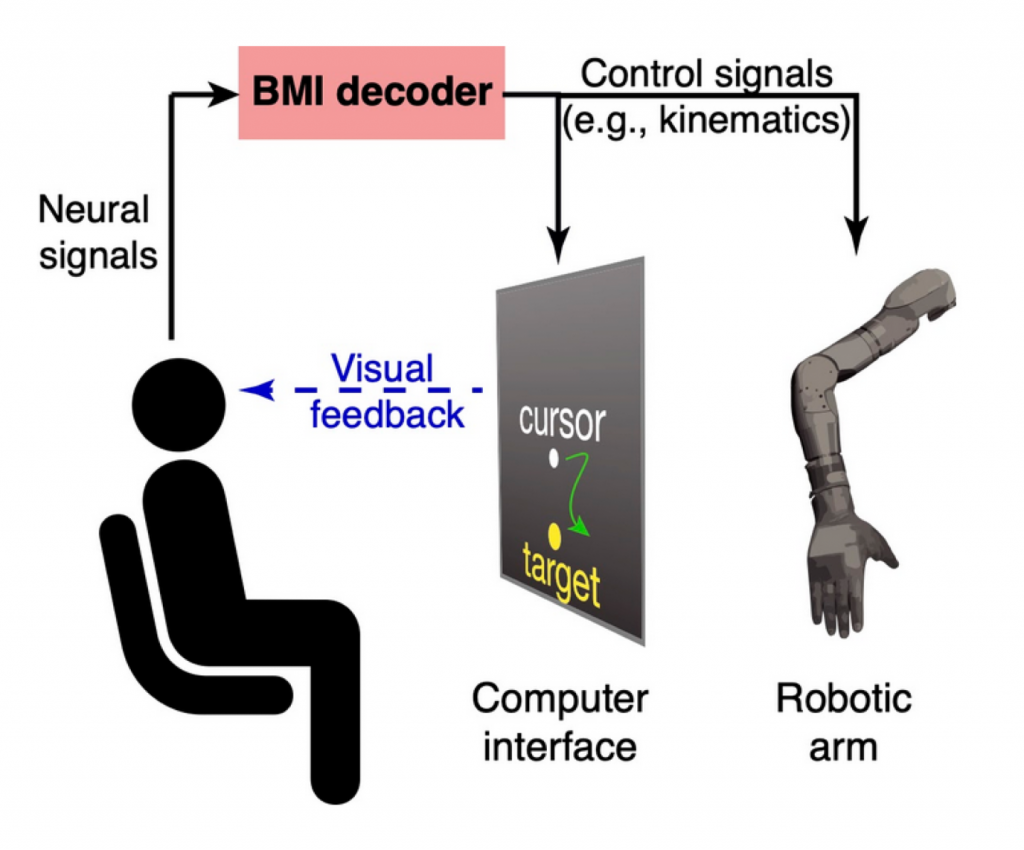
NIH recognizes engineering professor’s forward-thinking research proposal
As part of their High-Risk, High-Reward Research Program, the National Institutes of Health has recently awarded Assistant Professor Jonathan Kao the Director’s New Innovator Award for his research on brain-machine interfaces.
Professor Kao’s research at the Samueli School of Engineering, chosen by the NIH for its extraordinary creativity and unique impact, deals with restoring independence, movement, and control to those who have been paralyzed. In the United States alone, paralysis affects nearly 1 in 50 people, with causes ranging from strokes to spinal cord injuries. The goal of the brain-machine interfaces (BMIs) that Professor Kao’s research involves is to translate neural signals into physical actions, allowing paralyzed individuals to move and control external devices with the use of their minds alone. These devices record signals from the brain that reflect movement commands, and use an algorithm to “decode” these neural signals into movements. This allows one to interact with the environment in a manner that does not use muscle engagement, giving back a sense of autonomy to those who have lost it.
“While the BMI field has made very promising advances in the last 2 decades, we haven’t yet made a high-performance device that could be widely used at low cost and risk to patients. My lab has a strong commitment to help those with paralysis by innovating on next-generation BMIs that go beyond the research lab and to the public,” Kao said. Professor Kao’s proposal is revolutionary in that it makes use of artificial intelligence (AI) technology to work synergistically with the users of BMIs to predict and infer their movements. This novel approach increases BMI performance while also lowering consumer cost and risk for these devices. It may also lead to high-performance BMI technology without requiring invasive neurosurgery.

